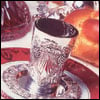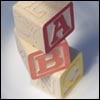1:1 The Av Melachah
The 11th of the 39 Melachos of Shabbos is Bishul - Cooking.1 Included in this Melachah is boiling, frying, baking and roasting.2 The precedent for this Melachah is the role of cooking in the construction of the Mishkan, where herbs were cooked to produce dyes.
1:2 The Definition of Bishul
The term Bishul means to change the quality of any type of substance by subjecting it to the heat of fire.3 The Melachah applies to both solids and liquids.4 The cooking process is prohibited whether it softens a hard substance5 or hardens a soft substance.6
1:3 “Aish” and “Toldos Aish”
Bishul is prohibited whether done directly with fire — “Aish”7 or by a substance that has been heated with fire — “Toldos Aish.” 8
Examples of Toldos Aish are:
a) Placing a raw egg into a pot of boiling hot water that has been removed from the fire.
b) Placing food into a hot oven, even though the oven has been turned off.
1:4 The Level of Bishul Solids
When is a substance called “cooked”? Once a raw food has been half-cooked so that it is edible — albeit with difficulty — it is considered cooked. This is called “Maachol Ben Drusoi” — after a highwayman called Ben Drusoi who always ate his food in a half-cooked state.9
It must be pointed out that to take a half-cooked food and cook it further is also an act of Bishul, since one is causing a significant improvement to the food.
To explain:
Maachol Ben Drusoi is the point at which a raw food is now considered cooked, and the point at which one who did the cooking has transgressed the prohibition of Bishul.10 Any further cooking from the level of Maachol Ben Drusoi to the level of being fully cooked is also considered Bishul.
A fully cooked food is not subject to the law of Bishul even if further cooking will improve the food; this is called “Mitztamake Veyofo Lo.”
Liquids
A liquid that has been heated to the temperature of “Yad Soledes Bo,” i.e., a temperature at which one would withdraw one’s hand from such a liquid due to the intensity of heat, is considered cooked. Most Poskim agree that Yad Soledes Bo is between 40 and 45 degrees Celsius, or approximately 110 degrees Fahrenheit.11
1:5 Speeding Up the Cooking Process
To transgress the prohibition of Bishul it is not necessary that one person do the entire cooking process from beginning to end. Even aiding the cooking process in some way or speeding up the cooking process is considered Bishul.12
Examples:
a) If there were an uncooked food in a pot that was only partially on the flame, which if left untouched would eventually cook, it would be prohibited to move the pot directly onto the flame since this would speed up the cooking process.13
b) One may not return a pot to the stove if the contents are not fully cooked.14
c) It is prohibited to place a lid on a pot that contains partially cooked food. This is because food in a covered pot cooks more quickly. Great care must be taken on Friday night to make sure that the cholent is fully cooked if one wishes to have a look at it. If the cholent would only be partially cooked, placing a lid on the cholent would be an act of Bishul. This would be the case even if the lid were lifted for a moment.
d) Stirring (“Maygis”) a partially cooked food causes the food to be cooked more quickly. One therefore may not stir a pot of partially cooked food whether it is on or off the flame.15
e) Closing an oven door when the food inside is not yet fully cooked.
From the above examples it is clear that removing food from a pot whose contents are not fully cooked may in some way speed up the cooking process. Therefore, it is strongly advised that all foods be fully cooked before Shabbos so as to avoid an act of Bishul.
1:6 Warming Food
Even if a person has the intention of only warming food, he may not place the food in a position where it potentially may be heated to Yad Soledes Bo.16
1:7 Cooking Done on Shabbos
If one did accidentally cook something on Shabbos, a Rav should be consulted as to the status of the food.








Join the Discussion